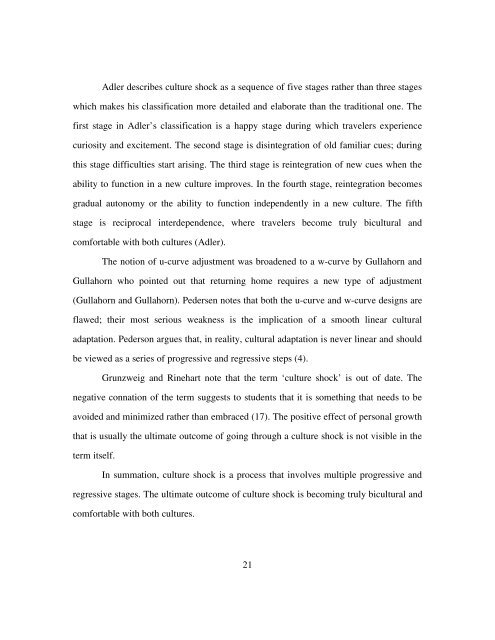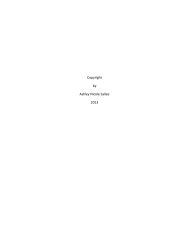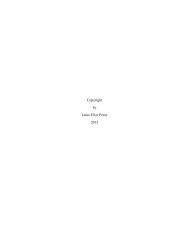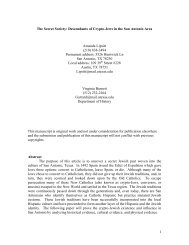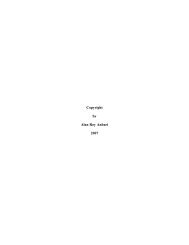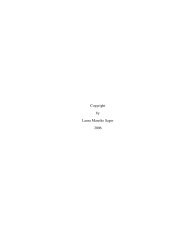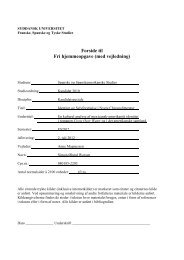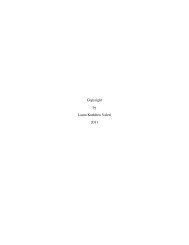Copyright by Tatiana Borisovna Segura 2008 - The University of ...
Copyright by Tatiana Borisovna Segura 2008 - The University of ...
Copyright by Tatiana Borisovna Segura 2008 - The University of ...
You also want an ePaper? Increase the reach of your titles
YUMPU automatically turns print PDFs into web optimized ePapers that Google loves.
Adler describes culture shock as a sequence <strong>of</strong> five stages rather than three stages<br />
which makes his classification more detailed and elaborate than the traditional one. <strong>The</strong><br />
first stage in Adler’s classification is a happy stage during which travelers experience<br />
curiosity and excitement. <strong>The</strong> second stage is disintegration <strong>of</strong> old familiar cues; during<br />
this stage difficulties start arising. <strong>The</strong> third stage is reintegration <strong>of</strong> new cues when the<br />
ability to function in a new culture improves. In the fourth stage, reintegration becomes<br />
gradual autonomy or the ability to function independently in a new culture. <strong>The</strong> fifth<br />
stage is reciprocal interdependence, where travelers become truly bicultural and<br />
comfortable with both cultures (Adler).<br />
<strong>The</strong> notion <strong>of</strong> u-curve adjustment was broadened to a w-curve <strong>by</strong> Gullahorn and<br />
Gullahorn who pointed out that returning home requires a new type <strong>of</strong> adjustment<br />
(Gullahorn and Gullahorn). Pedersen notes that both the u-curve and w-curve designs are<br />
flawed; their most serious weakness is the implication <strong>of</strong> a smooth linear cultural<br />
adaptation. Pederson argues that, in reality, cultural adaptation is never linear and should<br />
be viewed as a series <strong>of</strong> progressive and regressive steps (4).<br />
Grunzweig and Rinehart note that the term ‘culture shock’ is out <strong>of</strong> date. <strong>The</strong><br />
negative connation <strong>of</strong> the term suggests to students that it is something that needs to be<br />
avoided and minimized rather than embraced (17). <strong>The</strong> positive effect <strong>of</strong> personal growth<br />
that is usually the ultimate outcome <strong>of</strong> going through a culture shock is not visible in the<br />
term itself.<br />
In summation, culture shock is a process that involves multiple progressive and<br />
regressive stages. <strong>The</strong> ultimate outcome <strong>of</strong> culture shock is becoming truly bicultural and<br />
comfortable with both cultures.<br />
21


